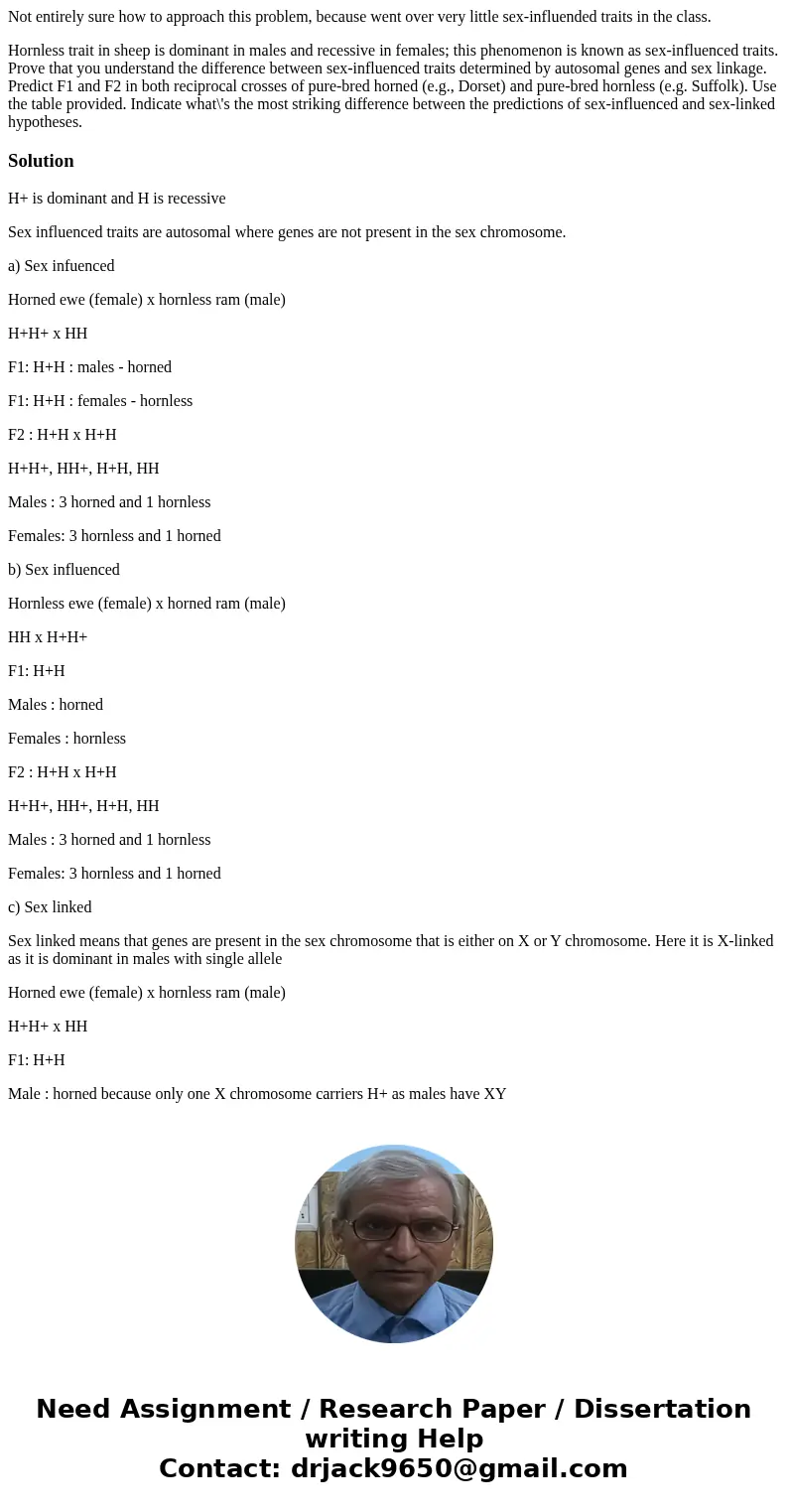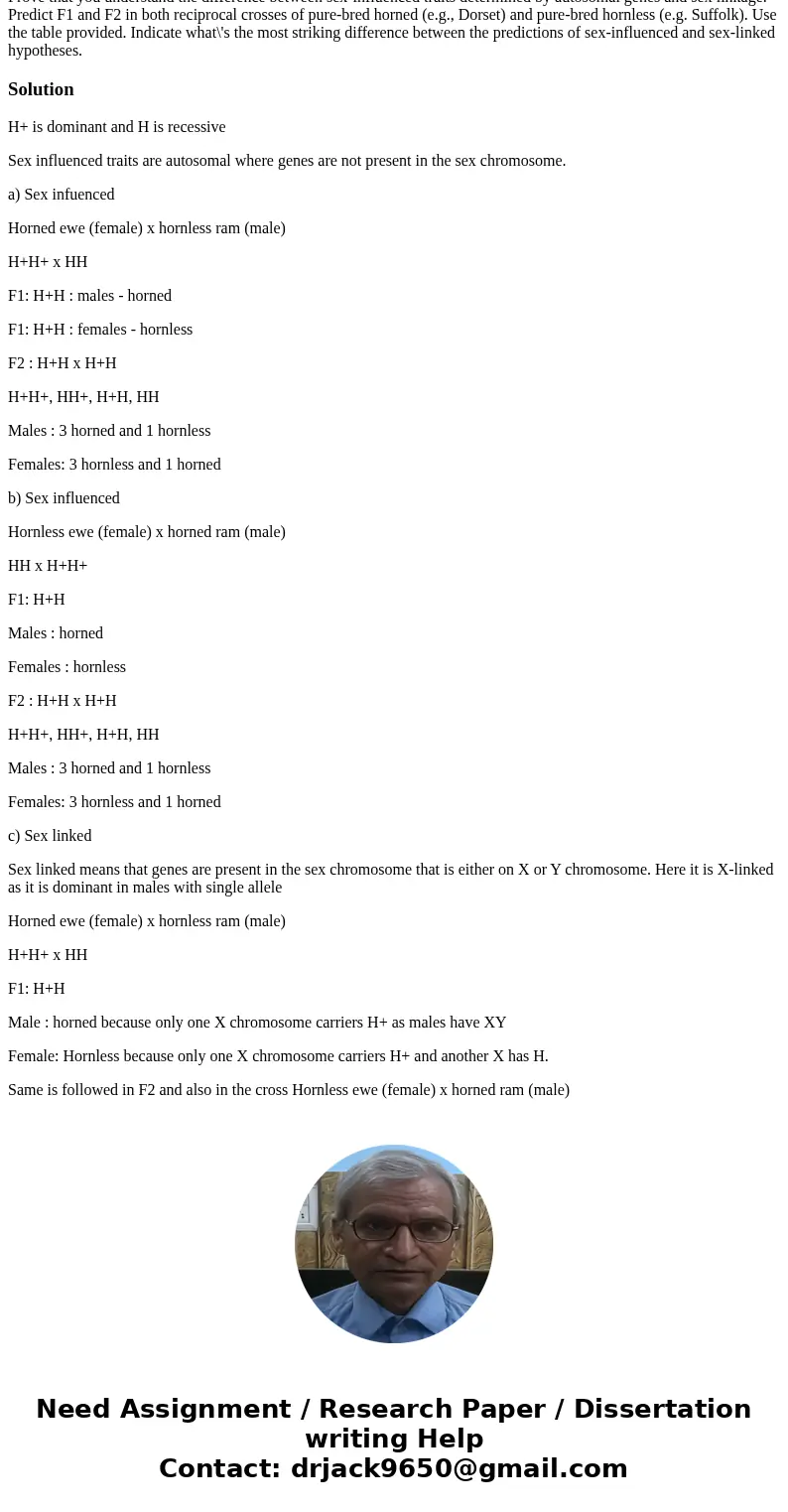Not entirely sure how to approach this problem because went
Not entirely sure how to approach this problem, because went over very little sex-influended traits in the class.
Hornless trait in sheep is dominant in males and recessive in females; this phenomenon is known as sex-influenced traits. Prove that you understand the difference between sex-influenced traits determined by autosomal genes and sex linkage. Predict F1 and F2 in both reciprocal crosses of pure-bred horned (e.g., Dorset) and pure-bred hornless (e.g. Suffolk). Use the table provided. Indicate what\'s the most striking difference between the predictions of sex-influenced and sex-linked hypotheses.Solution
H+ is dominant and H is recessive
Sex influenced traits are autosomal where genes are not present in the sex chromosome.
a) Sex infuenced
Horned ewe (female) x hornless ram (male)
H+H+ x HH
F1: H+H : males - horned
F1: H+H : females - hornless
F2 : H+H x H+H
H+H+, HH+, H+H, HH
Males : 3 horned and 1 hornless
Females: 3 hornless and 1 horned
b) Sex influenced
Hornless ewe (female) x horned ram (male)
HH x H+H+
F1: H+H
Males : horned
Females : hornless
F2 : H+H x H+H
H+H+, HH+, H+H, HH
Males : 3 horned and 1 hornless
Females: 3 hornless and 1 horned
c) Sex linked
Sex linked means that genes are present in the sex chromosome that is either on X or Y chromosome. Here it is X-linked as it is dominant in males with single allele
Horned ewe (female) x hornless ram (male)
H+H+ x HH
F1: H+H
Male : horned because only one X chromosome carriers H+ as males have XY
Female: Hornless because only one X chromosome carriers H+ and another X has H.
Same is followed in F2 and also in the cross Hornless ewe (female) x horned ram (male)


 Homework Sourse
Homework Sourse